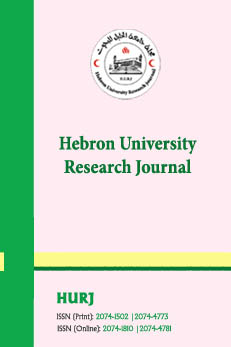News Archive
Hebron University Holds Seminar on Death Penalty between Islam and International Law
Hebron, 14 February 2012-- The Legal Clinic of Hebron University, in partnership with the Faculty of Sharia and the Human Rights and Democracy Media Center (SHAMS), held a seminar entitled "Death Penalty between International Law and Islamic Law". Three presentations were delivered at the seminar.
Dr. Mutaz Qafisheh, Professor of International Law and HU Legal Clinic Director, addressed the issue of capital punishment in the international law of human rights. Dr. Qafisheh said that the practice proved that death penalty is useless as it does not lead to the reduction of crimes in the countries in which it applies. He called upon the Palestinian legislator and authorities to abolish that penalty. He recommended that Palestine becomes a party to the Second Protocol of the International Covenant on Civil and Political Rights that requires State Parties to abolish that capital punishment, notably as the said Protocol is open for ratification and accession by State Parties to any of the UN specialized agencies; that becomes possible after the admission of Palestine into the membership of UNESCO in October 2011.
Dr. Mohannad Estaty, Professor of Islamic Judiciary at Hebron University, tackled the question of death penalty in Islamic Law, introducing the various types of punishments in that law. The purpose of penalty in Islam, stressed Dr. Etaty, is to protect the society and to preserve the rights of victims. In addition, the crimes that are punishable by death come within the scope of the most serious crimes enshrined in the international human rights standards, such as murder, armed robbery, and genocide. He mentioned that even penalties of these crimes are applicable only in exceptional cases; because the process of proving such crimes is difficult and the conditions of their execution cannot be normally realized. He referred to the concepts of pardon and repentance as means to avoid executions.
In his last presentation, advocate Fareed Atrash, Director of the Palestinian Independent Commission of Human Rights office in the southern West Bank, touched upon Death Penalty in the Palestinian Legal and Judicial Systems. He said that the applicable law uses the death penalty accessibly. The law should, therefore, be amended either by reducing the number of crimes punishable by death or by, preferably, abolishing that penalty at once. Practically, most cases of death penalty are exercised based upon political considerations by security courts or in reaction to popular/emotional demands. He concluded that, fortunately, the new draft Palestinian Penal Code has not included death penalty in any of its provisions, implying that there would be no death penalty in Palestine anymore in the future.
About 150 individuals attended the seminar, including law students, Islamic law students, professors and lawyers. Many questions were raised after the presentations by the participants and an interesting discussion has followed.
The seminar was moderated by Dr. Omar Rahal, Director of SHAMS.





